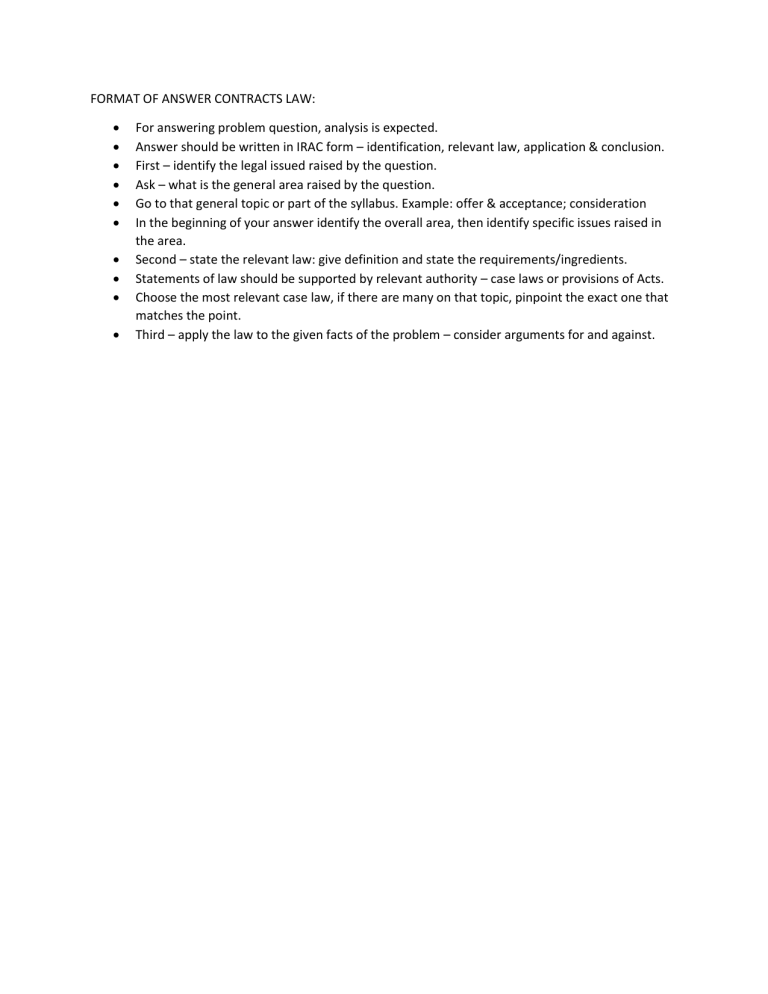
Legal Fundamentals Business Contract Law Explained
Understanding the Basics: An Introduction to Business Contract Law
In the world of business, contracts form the foundation of transactions and agreements. Understanding the fundamentals of business contract law is essential for entrepreneurs, business owners, and professionals alike. In this article, we will delve into the key concepts and principles that govern business contracts, providing clarity and insight into this crucial aspect of commercial law.
Defining Business Contracts: What You Need to Know
At its core, a business contract is a legally binding agreement between two or more parties. These agreements outline the rights and obligations of each party involved in a business transaction. Contracts can take many forms, from simple verbal agreements to complex written documents, but regardless of their format, they must meet certain legal requirements to be enforceable.
Elements of a Contract: The Building Blocks of Legal Agreements
Several essential elements must be present for a contract to be valid and enforceable. These include an offer, acceptance, consideration, legality, capacity, and intention to create legal relations. An offer is a proposal made by one party to another, indicating their willingness to enter into an agreement under certain terms. Acceptance occurs when the other party agrees to the terms of the offer. Consideration refers to something of value exchanged between the parties, such as money, goods, or services. Legality requires that the contract’s purpose and terms comply with applicable laws and regulations. Capacity refers to the legal ability of the parties to enter into a contract, and intention to create legal relations means that the parties intend for the agreement to be legally binding.
Types of Contracts: Exploring Varieties in Business Law
Business contracts come in various forms, each serving a specific purpose and function. Common types of contracts include sales contracts, employment contracts, service contracts, partnership agreements, and lease agreements. Each type of contract may have unique requirements and considerations, depending on the nature of the transaction and the parties involved. Understanding the different types of contracts is crucial for effectively navigating the complexities of business law.
Contract Formation: How Agreements Come Into Existence
The process of contract formation involves several stages, starting with negotiation and followed by offer, acceptance, and consideration. Once the parties have reached mutual agreement on the terms of the contract, it becomes legally binding. However, it’s essential to note that not all agreements are enforceable contracts. Contracts must meet certain legal requirements to be valid, including the presence of the essential elements mentioned earlier. Additionally, contracts may be subject to certain formalities, such as being in writing or signed by the parties, depending on the nature of the agreement and applicable laws.
Contract Interpretation: Unraveling Legal Language
Contracts are often written in legal language that may be unfamiliar to the average person. Contract interpretation involves deciphering the terms and provisions of a contract to understand their meaning and implications fully. This process requires careful analysis of the language used, as well as consideration of the context in which the contract was formed. In cases where the meaning of a contract is unclear or disputed, courts may use various tools and principles of contract interpretation to determine the parties’ intentions and enforce the agreement accordingly.
Breach of Contract: Consequences and Remedies
When one party fails to fulfill their obligations under a contract, it constitutes a breach of contract. Breaches can take many forms, ranging from non-performance to partial performance or defective performance of contractual duties. In such cases, the non-breaching party may be entitled to remedies, such as damages, specific performance, or contract rescission. The appropriate remedy depends on the nature and severity of the breach, as well as the terms of the contract and applicable legal principles.
Contract Enforcement: Protecting Your Rights
Enforcing a contract involves taking legal action to compel the breaching party to fulfill their obligations under the agreement. This may require initiating a lawsuit or arbitration proceeding to seek damages or other remedies for the breach. Contract enforcement can be a complex and time-consuming process, requiring the assistance of legal professionals who specialize in contract law. However, enforcing a contract is essential for protecting your rights and interests as a party to the agreement.
Contract Drafting: Crafting Effective Agreements
Drafting a contract requires careful attention to detail and a thorough understanding of contract law principles. Effective contracts clearly outline the rights and obligations of each party, anticipate potential disputes or contingencies, and include provisions for resolving conflicts. Contract drafting often involves collaboration between legal professionals and the parties involved in the agreement to ensure that the contract accurately reflects their intentions and protects their interests.
Conclusion
In conclusion, understanding the fundamentals of business contract law is essential for anyone involved in commercial transactions. By familiarizing yourself with the key concepts and principles of contract law, you can navigate business






